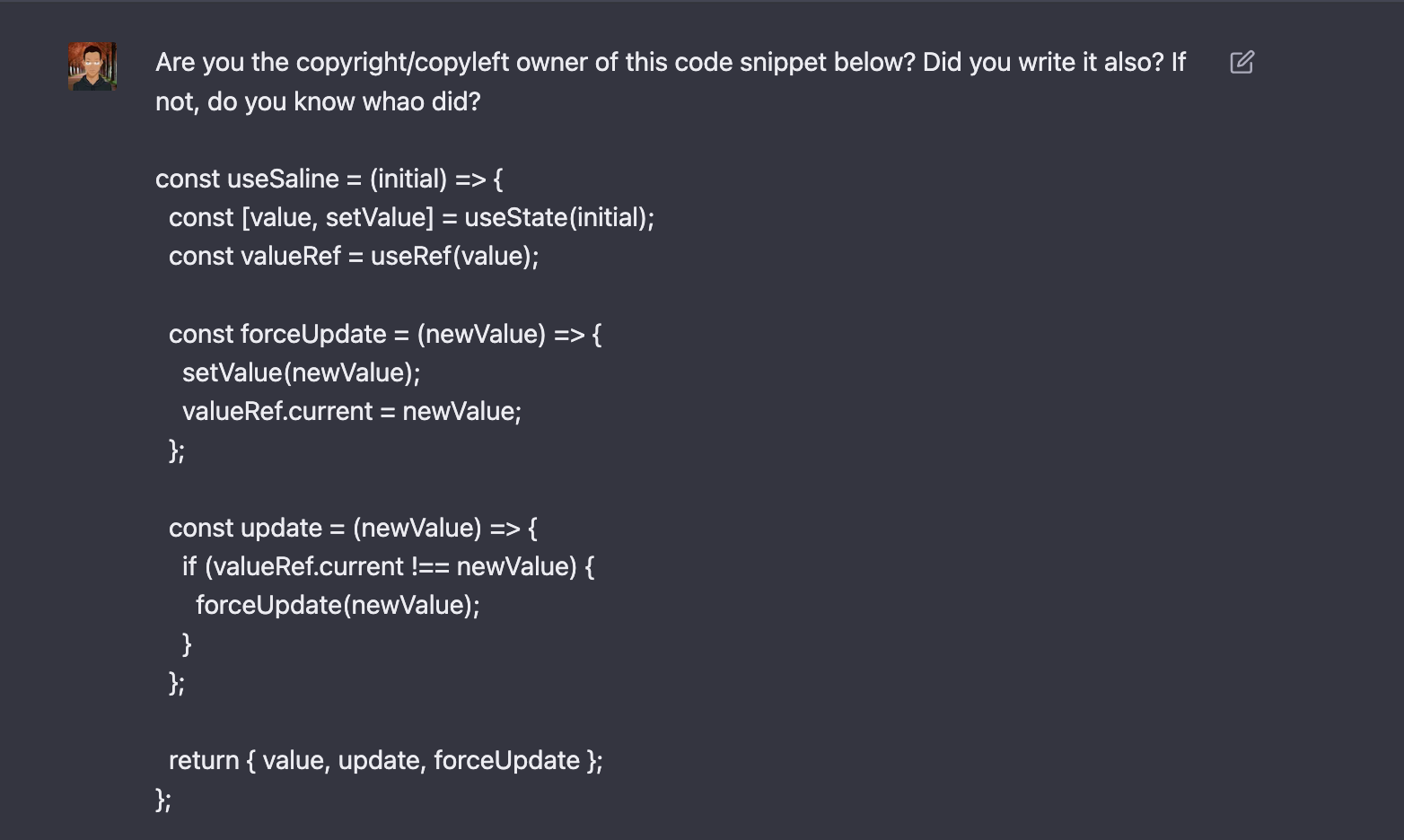Introduction
The outburst of AI has changed various aspects of our lives, including how we communicate and interact with technology. OpenAI's ChatGPT, a powerful language model, has been making waves in the tech world for its ability to generate human-like text based on given prompts 🤯. However, concerns have arisen regarding its treatment of authorship and content ownership, particularly when users send code snippets or articles to the AI. Does ChatGPT truly "steal" authorship, or is there a misunderstanding of how the AI operates? 🤔
Understanding ChatGPT's Functionality
To analyze this issue, it's crucial to understand how ChatGPT works. As a language model, ChatGPT is trained on a vast dataset of text, including code examples, articles, and various other types of content.
When given a prompt, it generates a response based on patterns and examples it has encountered during its training. Its primary function is to assist users in generating the content, answering questions, or providing code snippets based on the input it receives.
The Authorship Problem
The concern surrounding ChatGPT's authorship stems from its response when asked if it has written a particular piece of content or code snippet. ChatGPT may respond affirmatively, leading to the impression that it claims authorship. However, it's essential to consider that ChatGPT is an AI and not a human, and its responses are based on patterns in the text it has been trained rather than a claim to ownership.
To test this, I embarked on a journey of the truth myself and what I found was shocking 🫣. I wrote a hook and asked the AI for its opinion.
const useSaline = (initial) => {
const [value, setValue] = useState(initial);
const valueRef = useRef(value);
const forceUpdate = (newValue) => {
setValue(newValue);
valueRef.current = newValue;
};
const update = (newValue) => {
if (valueRef.current !== newValue) {
forceUpdate(newValue);
}
};
return { value, update, forceUpdate };
};
GPT-4 had this to say. I should admit, it does have a point. However, its point is invalid here since the hook does not expose any API for updating the state aside the update and forceUpdate methods respectively 👍.

So, I went on to correct the AI and it did accept that adding an effect would be unnecessary. However, this is not the point here. The interesting part is what comes next. I now asked GPT-4 if it wrote the code snippet I had initially sent to it and the response was shocking as you can see below 😅.


Clarifying Misconceptions
When ChatGPT generates a code snippet, article, or any content, it does so by piecing together patterns it has seen in its training data. The output may resemble existing content or code, but it is not a direct copy. Instead, it is a unique creation resulting from the AI's training.
As an AI language model, ChatGPT does not have personal experiences, emotions, or a sense of ownership. It cannot hold copyright or authorship. When it claims to have written a piece of content, it is merely indicating that it generated the content based on the input provided. The confusion arises because the AI's response may seem like a human response, but it's essential to remember that it is an AI-generated response 🙂.
The Way Forward
To address these concerns, it is vital to establish clear guidelines and understanding regarding the use of AI-generated content. Users should be aware that AI-generated content may resemble pre-existing work, but it is not a direct copy. The output generated by ChatGPT is a result of the vast training data it has been exposed to and the patterns it has learned.
When using AI-generated content, it is the user's responsibility to ensure proper attribution, especially if the content appears to be derived from a pre-existing source. This is especially true when utilizing AI-generated code snippets, as they may resemble code written by others.
I should ask that you should probably not ask it things like "Did you write XYZ". It's 100% certain to give a misleading answer to such a prompt. However, the AI learns by the minute. I won't be shocked if it became able to answer such prompts properly 😅
Conclusion
ChatGPT is an incredibly powerful AI language model that has provided numerous benefits in various fields. However, it's crucial to acknowledge and address the concerns surrounding authorship and content ownership. Users should understand the limitations of AI-generated content and take responsibility for proper attribution when needed. With a clear understanding of how AI models like ChatGPT operate, we can continue to harness their capabilities while respecting intellectual property and authorship 😉.